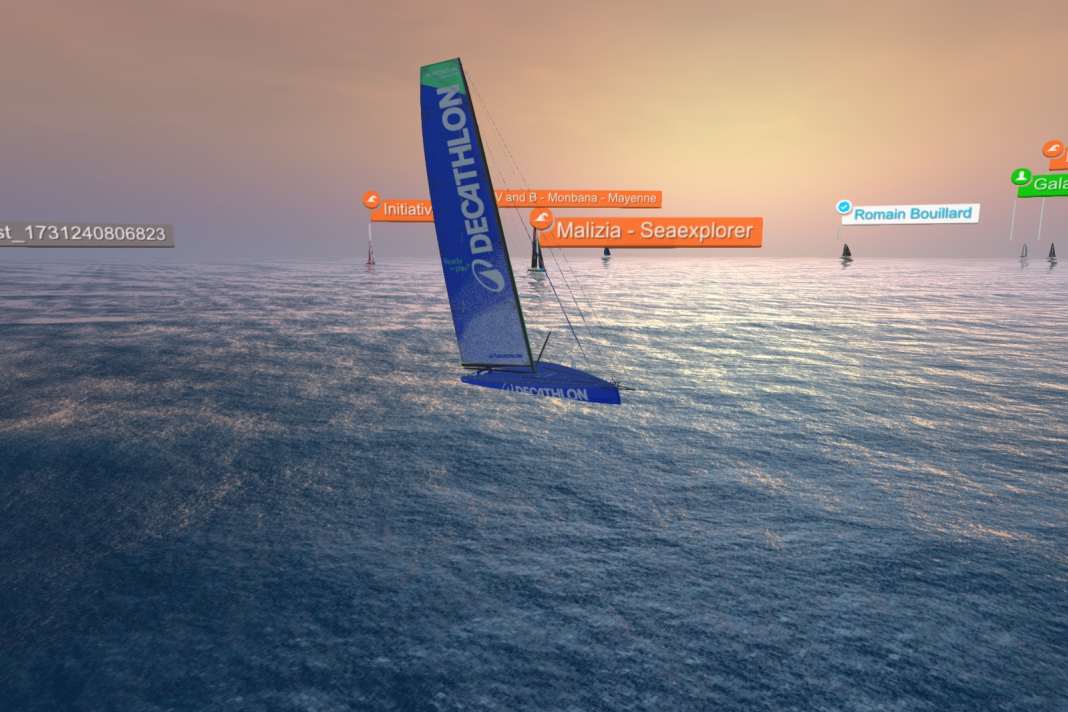





From Lake Constance to the top of offshore sailing? Laurent Wurmser from Meersburg reached the finish line of the Vendée Globe after just 75 days, 16 hours, 28 minutes and 19 seconds. The engineer, who grew up in France, didn't even have to leave the house. Wurmser simply sailed around the globe virtually. The now established computer game "Virtual Regatta", which works with data from real weather models, among other things, made it possible.
While the successful German e-Sailor with the nickname "El_Double_Ve" would finish just ahead of Thomas Ruyant in seventh place in the real Vendée Globe classification, his time in the game is even good enough for second place, just behind the winner Gilles Boulard - from France, of course. Unlike the real circumnavigation with Charlie Dalin's fabulous time of 64 days, 19 hours, 22 minutes and 49 secondsno records were broken in the simulation for this edition.
Vendée Globe: 850,000 participants in the Virtual Regatta
The moody weather must have given the almost 850,000 participants in the Virtual Regatta a similar headache as the 40 skippers on their Imocas, despite their sheltered position on their smartphones, tablets or PCs. Their Enormous leap in development since the last Vendée and an undoubtedly impeccable performance from Charlie Dalin should explain the clear lead of the professionals from the real world. Deviations between the prediction models used in the video game and the reality on the water also distort the direct comparison between the real race and its digital counterpart.
Meanwhile, virtual sailing is becoming increasingly important. The "Virtual Regatta" game, which was launched in 2006, is inspiring more and more people and offers virtual access to the most important offshore races. 8,200 school classes took part in the Vendée Globe on screen and companies, such as the Bénéteau Group with 15,000 of its employees, also took part in the race, including their own ranking.
Virtual sailing on the rise
Simulated sailing on triangular courses is also attracting more and more attention. Just a few weeks ago, the German e-Sailing Championship took place with a record 64 participants using the inshore version of "Virtual Regatta". The 19-year-old Mats Krüss from Hamburg, who normally sails J/70 and J/24, secured the title.
In the future, simulators could also play an increasingly important role in success on the real regatta course and in learning to sail. This was recently demonstrated by the 37. America's Cupwhere the use of simulators was essential for all teams. German sailors even prepared for the Youth and Women's America's Cup races with the fast AC40 foils exclusively on the computer. Other projects are also trialling the use of virtual reality for sailing schools.
